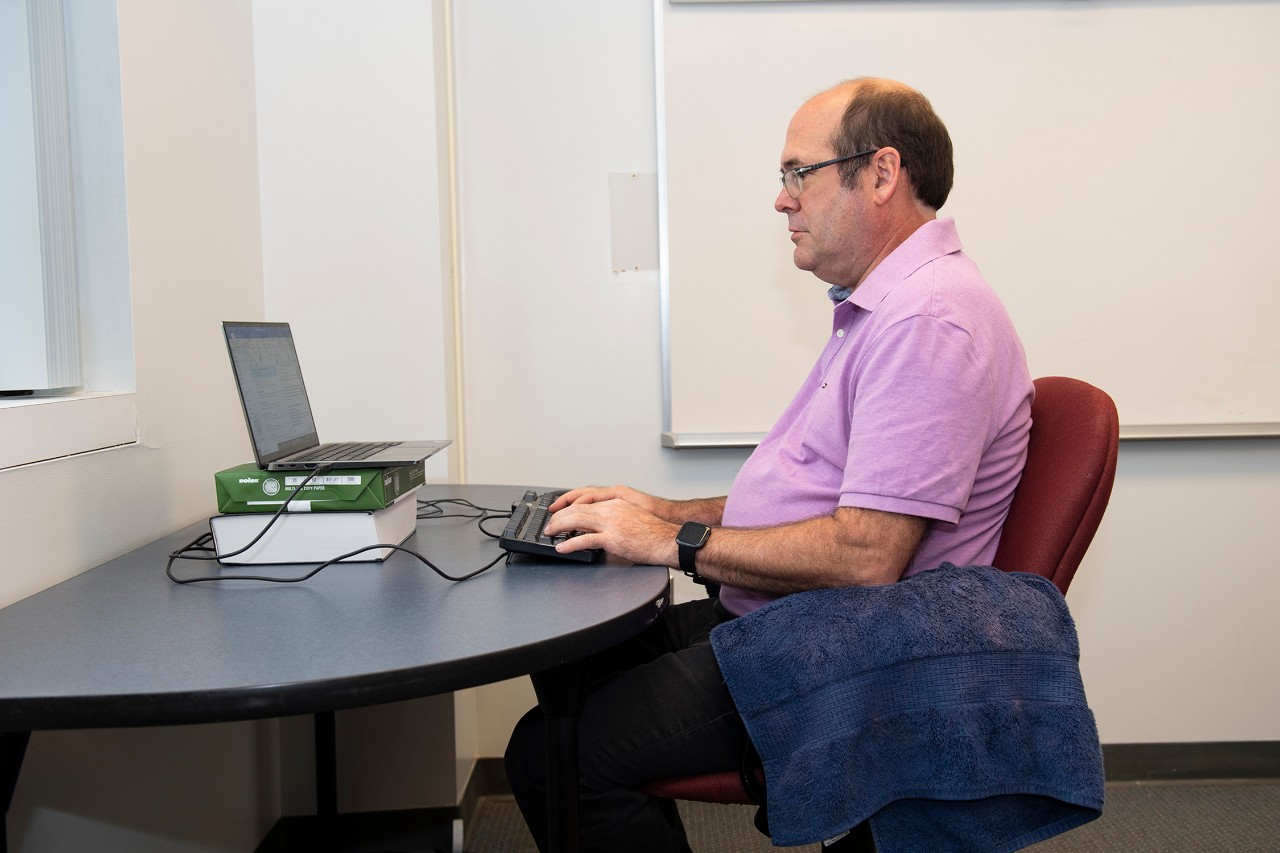
The Wall Street Journal: Does a Dedicated Workspace Make WFH Life Better?
UC ergonomics expert says poor office space posture poses carpal tunnel and other risks
The COVID-19 pandemic has forced employers across the nation to ask workers to operate from home. Often that comes with little guidance in creating an office work space that takes proper ergonomics into account. Kermit Davis, PhD, UC expert in office ergonomics and professor in the College of Medicine, spoke with the Wall Street Journal about how this may be affecting the health of workers.
A recent survey by Davis found that 75 percent of at-home workers reported hunching over laptops, which can add up to 10 pounds of pressure on the neck and upper back for every inch you dip forward. Also, working for a laptop on the kitchen table can pose some risks for carpal tunnel if you are leaning into the table from a chair. The survey findings were published in Ergonomics in Design.
The Wall Street Journal interview with Davis is available online. (Note a subscription may be required though a copy is also available emailing cedric.ricks@uc.edu)
Read a UC story about research from Dr. Davis.
Featured photo of Kermit Davis, PhD, taken by Colleen Kelley/ UC Creative + Brand.
Related Stories
Everything you need to know about scents and your hair
May 1, 2025
The University of Cincinnati's Kelly Dobos was featured in an NBC News article discussing the science behind hair fragrances and shampoos.
A farewell for the iconic Crosley Tower
May 1, 2025
The Cincinnati Business Courier reports that UC Board of Trustees approved $47.3 million for remediation and demolition of Crosley Tower. There are mixed feelings about what has been dubbed by some as the ugliest building on a U.S. college campus.
Machine learning brings new insights to cell’s role in...
April 30, 2025
Researchers led by the University of Cincinnati’s Anna Kruyer and the University of Houston’s Demetrio Labate have published research in the journal Science Advances applying object recognition technology to track changes in brain cell structure and provide new insights into how the brain responds to heroin use, withdrawal and relapse.
